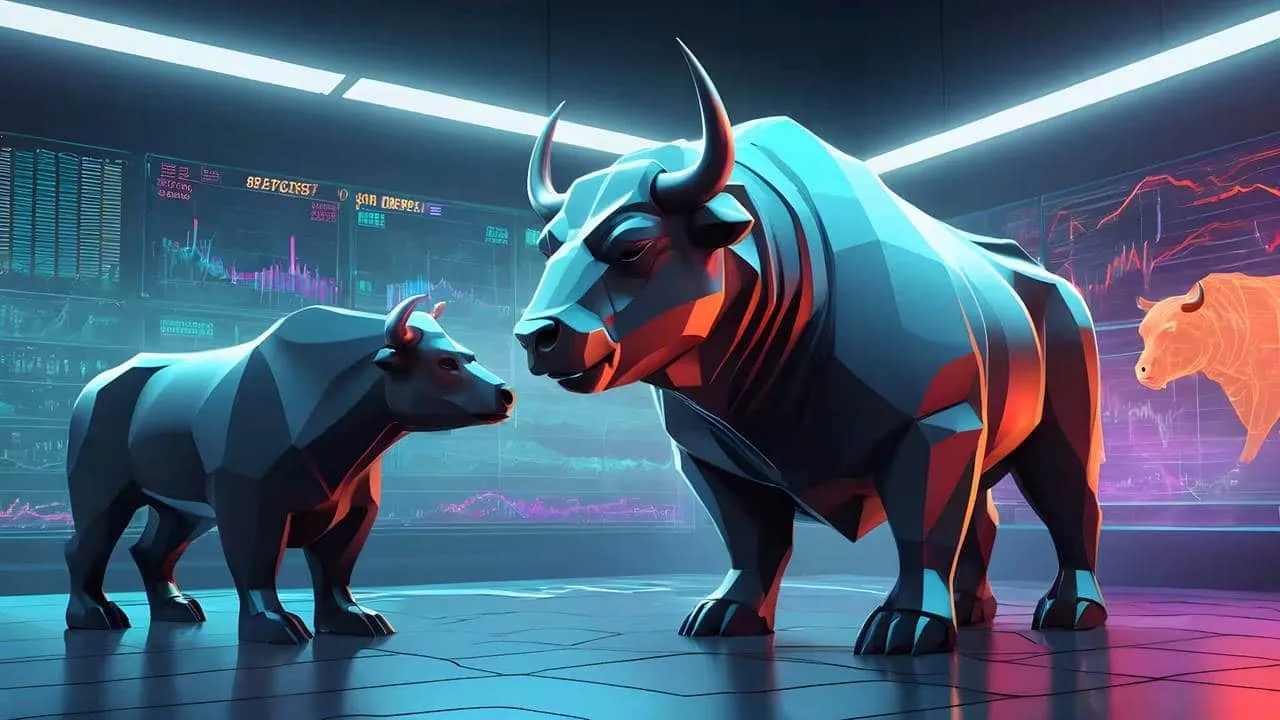The UK’s inflation rate unexpectedly climbed to a 16-month high of 3.6% in June, dimming hopes for immediate interest rate cuts, while major US banks like Goldman Sachs, Morgan Stanley, and Bank of America reported impressive second-quarter profits, largely fueled by market volatility linked to President Trump’s tariffs. This dichotomy highlights a global economic landscape navigating both domestic price pressures and the complex impacts of international trade policy.
Contents
- UK Inflationary Pressures Mount, Rate Cut Hopes Dim
- US Banks Thrive on Market Volatility, Propelling Wall Street
- Goldman Sachs: Trading Desk Profits Soar
- Morgan Stanley Exceeds Profit Forecasts
- Bank of America Records Trading Growth
- Key Corporate Developments and Industry Insights
- Diageo CEO Steps Down Amid Performance Struggles
- Co-op Confirms Data Breach Affects All Members
- Barclays Fined £42 Million for Money-Laundering Failures
- Renault Faces Setbacks, Lowers Guidance
- Rio Tinto’s Strong Iron Ore Production
- Luxury Market: Jewelry Shines for Richemont
- Nvidia’s China Sales Outlook Improves, ASML Cautions
- Pop Mart’s Labubu Dolls Drive Profit Surge
- Policy and Trade Landscape
- Chancellor Calls for Lighter Regulatory Touch
- Trump Imposes New Tariffs, Trade Deals Evolve
- Outlook and Implications
Key Takeaways:
- UK Inflation: Consumer Price Index (CPI) rose to 3.6%, driven by higher motor fuel and food prices, complicating the Bank of England’s rate cut decisions.
- US Bank Earnings: Goldman Sachs, Morgan Stanley, and Bank of America exceeded profit forecasts, with trading revenues surging due to market turbulence.
- Corporate Shifts: Diageo’s CEO stepped down amid falling sales and investor confidence, while Co-op confirmed a data breach affecting all 6.5 million members.
- Market Dynamics: Wall Street indices saw a boost from the strong bank results, though UK bond yields rose in response to inflation data.
UK Inflationary Pressures Mount, Rate Cut Hopes Dim
The UK experienced an unexpected surge in its Consumer Price Index (CPI) inflation, reaching 3.6% in June, up from 3.4% in May. This 16-month high surprised economists who had anticipated the rate to remain stable. The primary culprits behind this rise were motor fuel prices, which saw only a slight fall compared to a larger decrease last year, and food prices, which marked their third consecutive monthly increase to the highest annual rates since February of the previous year.
This inflation spike puts the Bank of England’s Monetary Policy Committee (MPC) in a challenging position. Despite two rate cuts this year, from 4.75% to 4.25%, the rising inflation figures make a further quarter-point cut in August less likely, contrary to market expectations. Economists are divided, with some suggesting the Bank may still cut rates but at a more gradual pace, while others argue that inflation significantly above the 2% target restricts their flexibility. Read more on UK inflation analysis.
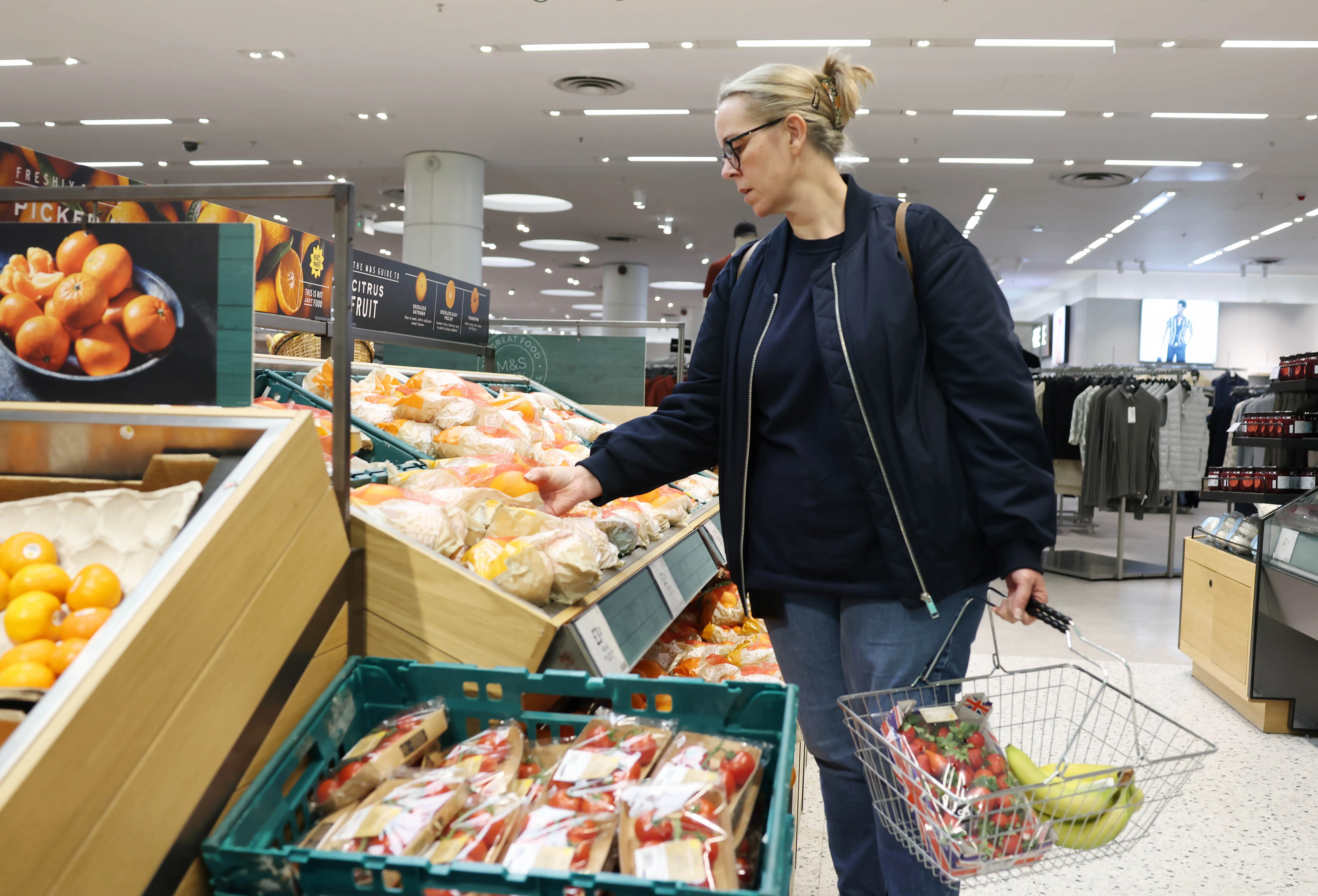 A shopper selecting produce in a supermarket, symbolizing the rising food prices contributing to UK inflation
A shopper selecting produce in a supermarket, symbolizing the rising food prices contributing to UK inflation
Meanwhile, growth in average monthly private rents slowed slightly to 6.7% in June, reaching £1,344, a modest decrease from 7% in May. Regional variations persist, with Wales seeing an 8.2% rise to £804, and Scotland a 4.4% increase to £999. Average house prices also saw an uptick, increasing by 3.9% to £269,000 in the year to May.
US Banks Thrive on Market Volatility, Propelling Wall Street
Major US banks reported robust second-quarter earnings, largely benefiting from the heightened market volatility spurred by President Trump’s trade policies. This strong performance provided a significant boost to Wall Street’s main indices. The S&P 500, Dow Jones Industrial Average, and Nasdaq Composite all saw gains as trading opened.
Goldman Sachs: Trading Desk Profits Soar
Goldman Sachs reported a substantial 36% rise in second-quarter revenue from its stock trading desks, reaching $4.3 billion. This figure surpassed analysts’ forecasts by approximately $600 million, driven by the turbulence stemming from the ongoing trade war. Overall net quarterly revenue climbed 15% year-on-year to $14.58 billion, with net profits rising to $3.72 billion. CEO David Solomon noted the economy and markets are generally responding positively to the evolving policy environment, while emphasizing a continued focus on risk management amidst unpredictable developments.
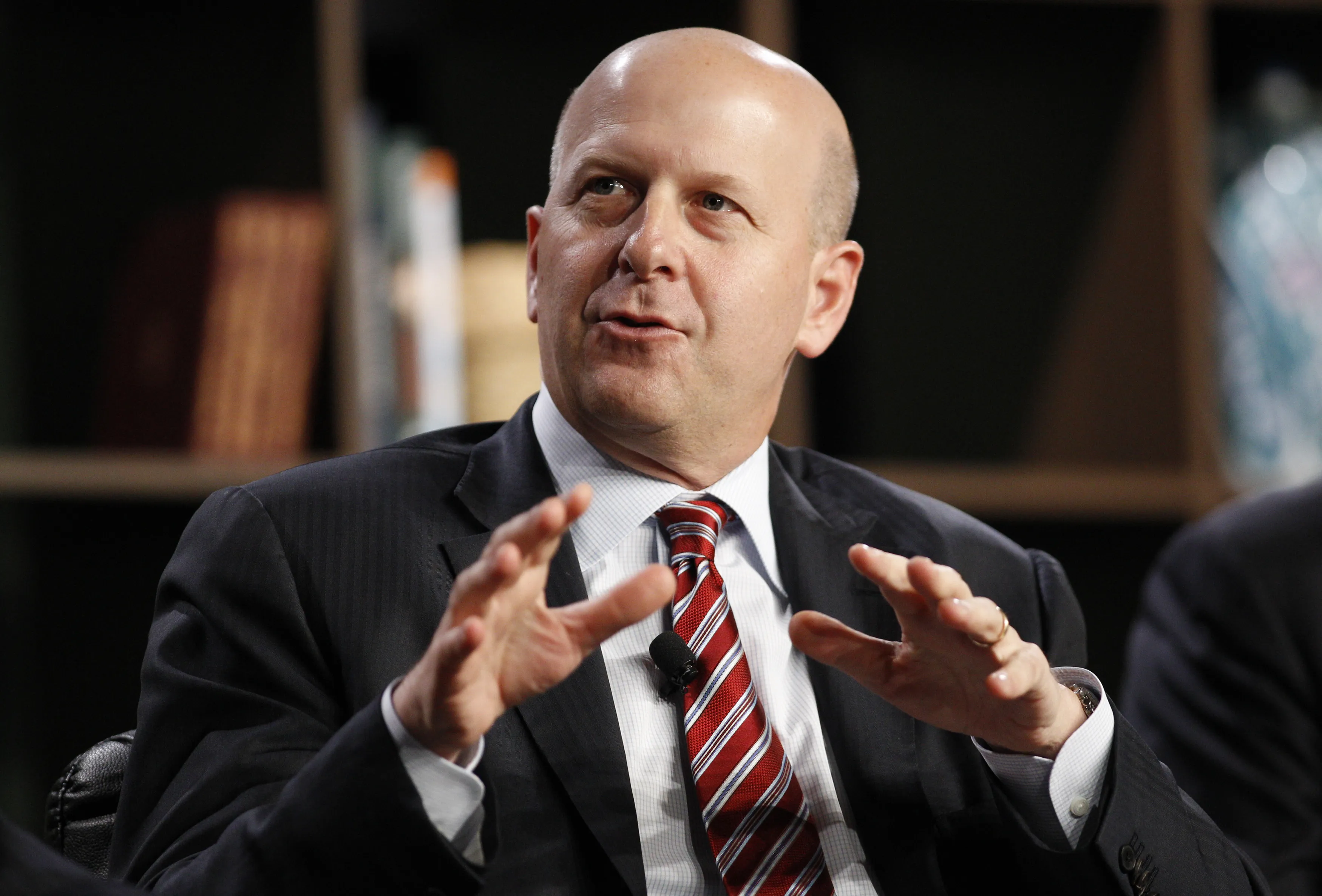 Goldman Sachs CEO David Solomon discussing market dynamics and risk management
Goldman Sachs CEO David Solomon discussing market dynamics and risk management
Morgan Stanley Exceeds Profit Forecasts
Morgan Stanley also outperformed Wall Street profit forecasts, leveraging volatile markets similar to its peers. The bank posted a net income of $3.5 billion for the three months ending June, a healthy increase from $3.1 billion a year prior, with revenue reaching $16.8 billion, exceeding expectations. Equities trading revenue jumped 23% following President Trump’s tariff announcements, and fixed income revenue also saw a significant 9% rise. However, the bank’s investment banking arm experienced a 5% revenue drop due to fewer completed M&A transactions.
Bank of America Records Trading Growth
Bank of America’s second-quarter profit increased to $7.1 billion, surpassing forecasts. The bank saw net interest income of $14.7 billion. Critically, revenue from trading operations surged 14% to $5.3 billion, marking a record for the second quarter and its 13th consecutive quarter of year-on-year revenue growth. Its equities division revenue was up 10%, while fixed income revenue saw an even larger 19% increase, both benefiting from the volatile market conditions. Despite these strong segments, overall revenue grew 4% to $26.46 billion, slightly below analyst expectations.
Key Corporate Developments and Industry Insights
Diageo CEO Steps Down Amid Performance Struggles
Debra Crew has resigned as chief executive of spirits giant Diageo, with Nik Jhangiani, the CFO, assuming the interim role. The company’s board is seeking a permanent replacement to spearhead a turnaround, as Diageo has grappled with declining alcohol sales and a significant loss of investor confidence. The FTSE 100 company’s share price has fallen by over 40% since Crew’s appointment two years ago, notably after a profit warning stemming from an unexpected fall in Latin American sales. The company has struggled to regain its pandemic-era growth momentum.
Co-op Confirms Data Breach Affects All Members
The Co-op, a major retailer, confirmed that all 6.5 million of its members had their data stolen in a cyberattack that occurred in April. CEO Shirine Khoury-Haq expressed devastation over the incident, which resulted in the loss of names, addresses, and contact information, though no transaction data was compromised. The Co-op is still working to restore its back-end systems and has collaborated with authorities, providing crucial information on the hackers’ activities within their systems. In response, the Co-op is partnering with The Hacking Games, a UK-based group, to identify and channel young cybersecurity talent into ethical careers, highlighting the evolving and alarming rate of cyber threats.
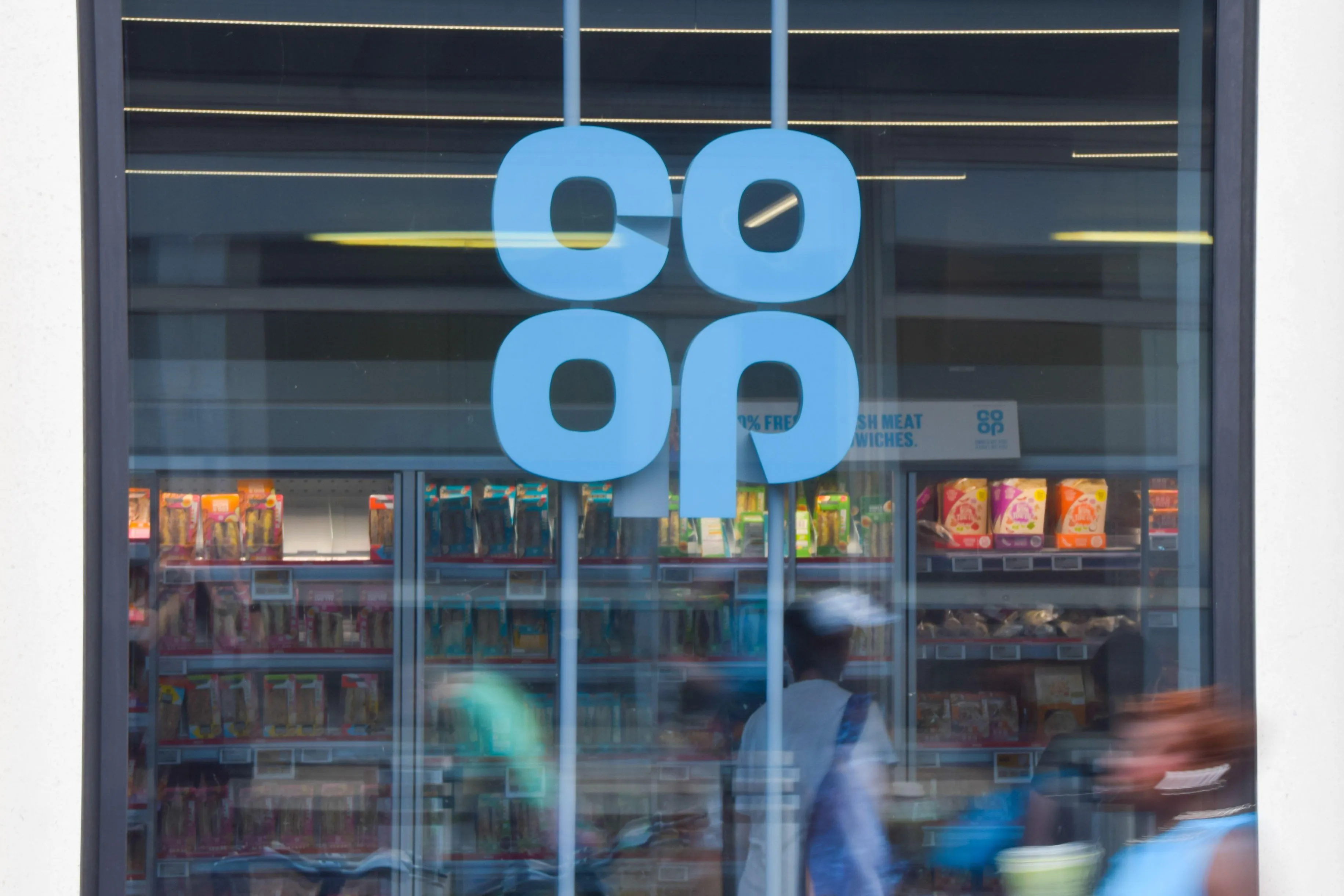 Exterior view of a Co-op retail store, highlighting the brand impacted by a recent cyberattack
Exterior view of a Co-op retail store, highlighting the brand impacted by a recent cyberattack
Barclays Fined £42 Million for Money-Laundering Failures
Barclays has been hit with a £42 million fine by the Financial Conduct Authority (FCA) for “poor handling” of financial crime risks. The bulk of the fine, £39.3 million, relates to inadequately managing money laundering risks tied to banking services provided to the firm Stunt & Co. Additionally, Barclays Bank UK was fined £3.1 million for failing to sufficiently assess money laundering risks before opening a client money account for the now-collapsed wealth management firm WealthTek. For full details on the Barclays fine, click here.
Renault Faces Setbacks, Lowers Guidance
French carmaker Renault saw its shares fall 16% after lowering its 2025 financial guidance. The revision was attributed to weaker-than-expected sales volumes in June and a challenging European market. Renault now targets a full-year operating margin of 6.5%, down from its previous goal of at least 7%. The company also reported a mere €47 million in free cash flow for the first half, impacted by negative working capital due to delayed billings and a decline in the European passenger car and van market. Duncan Minto has been named interim chief executive as the search for a permanent leader continues.
Rio Tinto’s Strong Iron Ore Production
FTSE 100 miner Rio Tinto reported its strongest quarter for iron ore production since 2018. Production at its Pilbara mines in Western Australia rose 5% to 83.7 million tonnes in the second quarter, although shipments slightly missed analysts’ expectations due to extreme weather. This positive update came a day after Simon Trott, head of its iron ore operations, was promoted to chief executive. Learn more about Simon Trott’s appointment.
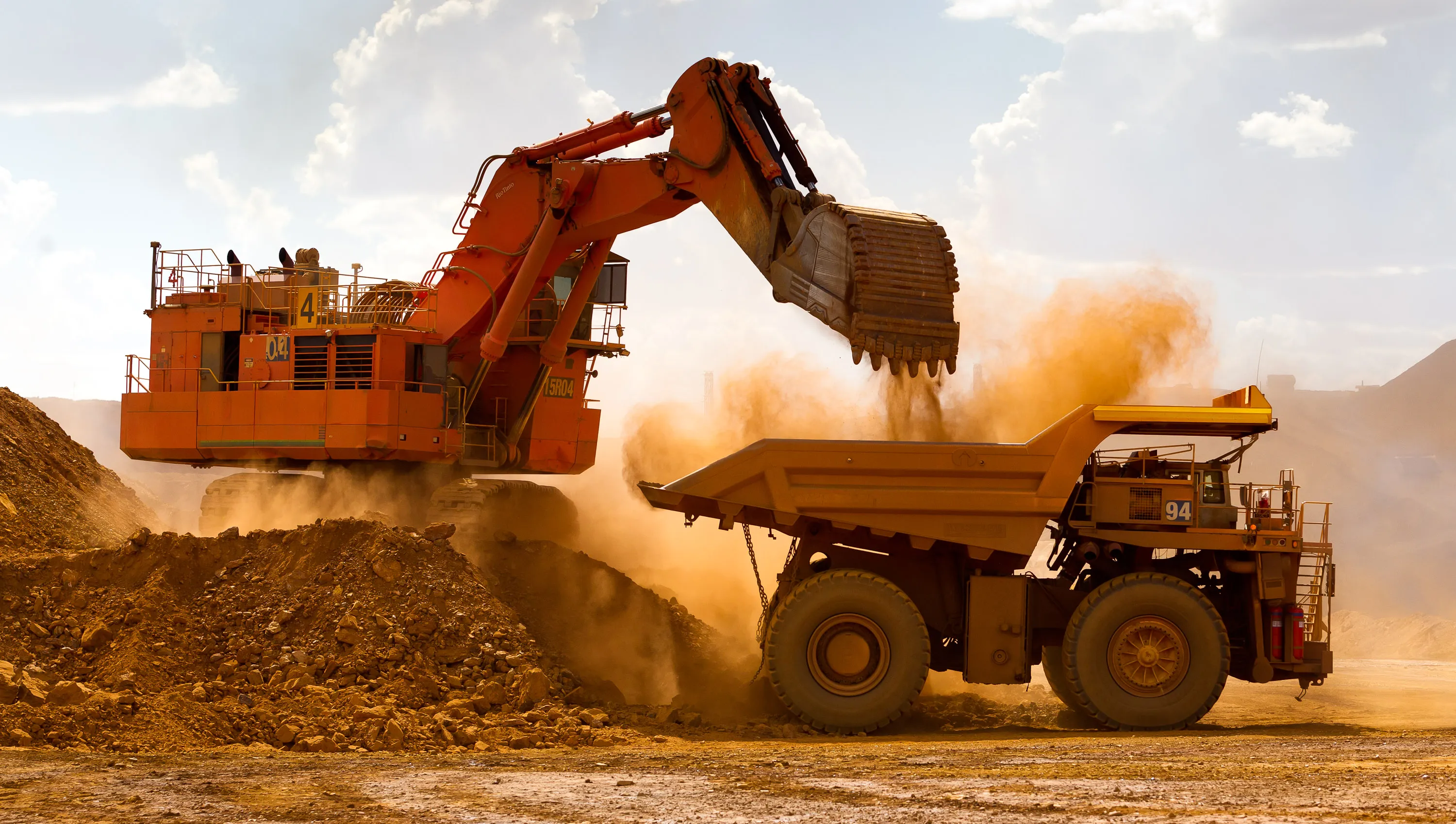 A large excavator loading iron ore into a truck at a mining site, illustrating Rio Tinto's strong production quarter
A large excavator loading iron ore into a truck at a mining site, illustrating Rio Tinto's strong production quarter
Luxury Market: Jewelry Shines for Richemont
Swiss luxury group Richemont, known for brands like Cartier and Van Cleef & Arpels, reported a 6% rise in first-quarter sales, primarily driven by robust demand for its jewelry. The jewelry division saw an 11% increase in sales to €3.9 billion at constant currency rates, defying a broader slowdown in the luxury market. However, its watches division, including IWC Schaffhausen and Jaeger-LeCoultre, saw revenue fall 7% to €824 million, and sales in its other fashion and accessories sector also declined. While sales in Japan were down 15%, the Americas region saw a significant 17% revenue increase.
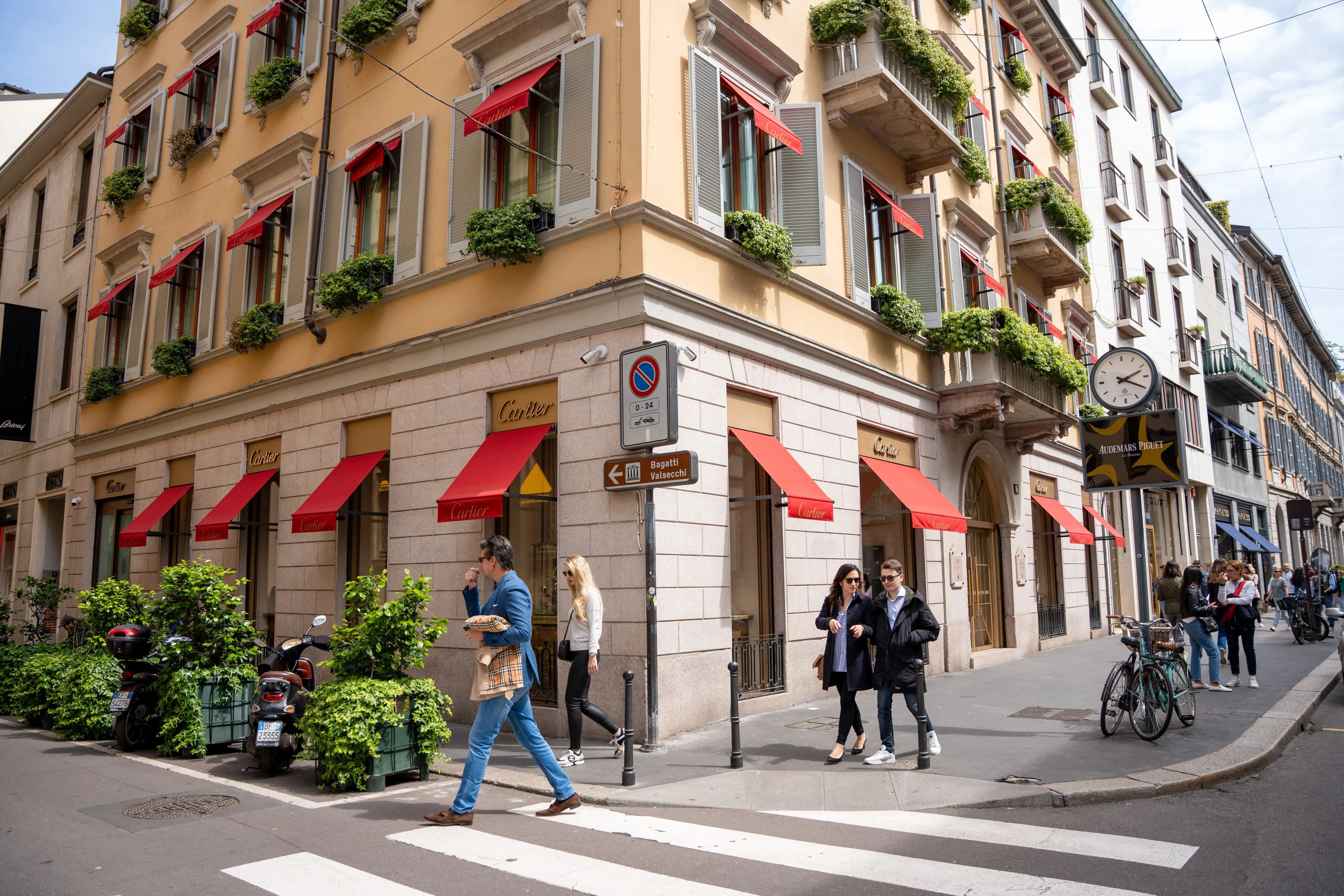 A luxury Cartier boutique on a bustling street, symbolizing strong demand for high-end jewelry
A luxury Cartier boutique on a bustling street, symbolizing strong demand for high-end jewelry
Nvidia’s China Sales Outlook Improves, ASML Cautions
Nvidia CEO Jensen Huang, during a visit to China, expressed optimism that the US decision to allow resumed shipments of its H20 processor would “accelerate the recovery” of its China sales. Huang likened AI to fundamental infrastructure, similar to electricity, and described US-China export controls as “constructive and positive.” This follows a $4.5 billion writedown by Nvidia in April after tighter US export restrictions on advanced chips.
However, ASML, a key supplier of chip-making equipment to Nvidia and AMD, saw its shares fall sharply after warning that it might not achieve growth next year. Despite reporting better-than-expected net bookings of €5.54 billion for the second quarter, CEO Christophe Fouquet cited increasing uncertainty from macro-economic and geopolitical developments, including the unclear effects of US tariffs.
 Nvidia CEO Jensen Huang speaking about AI's role as fundamental infrastructure and US-China chip trade
Nvidia CEO Jensen Huang speaking about AI's role as fundamental infrastructure and US-China chip trade
Pop Mart’s Labubu Dolls Drive Profit Surge
Chinese toy company Pop Mart, creator of the highly popular Labubu dolls, anticipates first-half profits to jump by at least 350% on revenues that have more than tripled. The Beijing-based company attributed this surge to increased global brand recognition and effective cost controls. The dolls’ popularity has led to long queues and even shopper altercations at its 16 UK outlets, with reports of resellers inflating prices. While investors are concerned about the sustainability of this profit surge, the global demand remains strong. Explore the cultural phenomenon of Labubu dolls in China.
 A display of popular Labubu dolls, illustrating the global demand and sales surge for Pop Mart's collectibles
A display of popular Labubu dolls, illustrating the global demand and sales surge for Pop Mart's collectibles
Policy and Trade Landscape
Chancellor Calls for Lighter Regulatory Touch
Chancellor Rachel Reeves criticized “over-cautious regulators” for hindering businesses, describing their approach as “a boot on the neck of businesses.” Addressing City of London leaders at the annual Mansion House dinner, Reeves outlined plans to encourage greater investment in shares by ordinary British savers. She urged regulators to avoid “excessive caution” and enable financial firms to grow faster. Read more on the Chancellor’s call for lighter regulation.
 Chancellor Rachel Reeves addressing City of London leaders at Mansion House, advocating for business-friendly regulation
Chancellor Rachel Reeves addressing City of London leaders at Mansion House, advocating for business-friendly regulation
Trump Imposes New Tariffs, Trade Deals Evolve
President Trump has imposed a new 19% tariff on goods imported from Indonesia, part of a broader push for new trade agreements. This pact with a minor trading partner is one of the few ahead of an August 1 deadline for tariffs on most US imports, despite a stated goal of achieving “90 deals in 90 days.” While framework agreements have been reached with the UK and Vietnam, and an interim deal with China to avert steeper tariffs is in place, negotiations continue, with India also reportedly moving in a similar direction. The European Union is preparing retaliatory measures should talks with Washington fail.
Outlook and Implications
The latest economic and corporate developments paint a mixed global picture. While US financial institutions are capitalizing on market dynamics, the UK faces persistent inflationary pressures that could impact household budgets and central bank policy. Geopolitical tensions continue to shape trade relations and tech supply chains. Investors will closely watch central bank decisions, evolving trade policies, and corporate responses to both domestic and international headwinds. Understanding these diverse factors is key to navigating the current market environment.


















